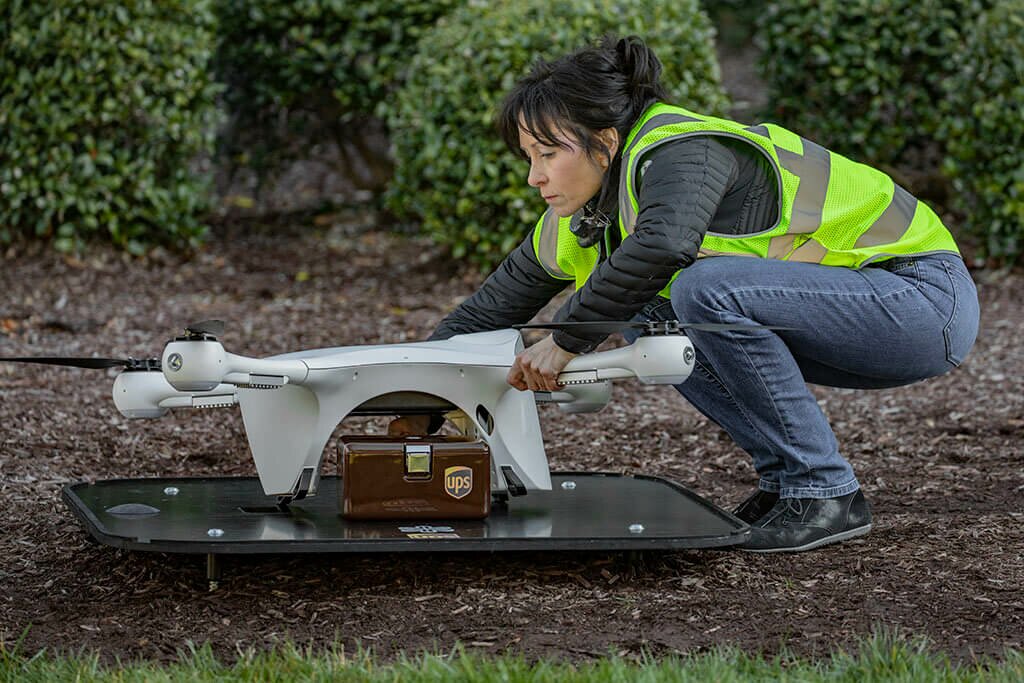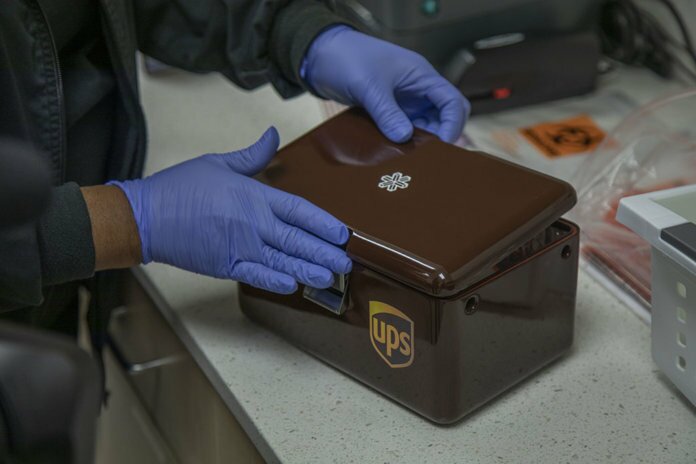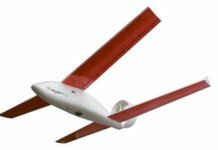UPS has formed a new partnership with Matternet to deliver medical samples via drone.
The program is taking place at WakeMed’s flagship hospital and campus in the Raleigh, N.C., metropolitan area, with oversight by the Federal Aviation Administration (FAA) and North Carolina Department of Transportation (NCDOT). A first flight on Tuesday marked the beginning of numerous planned daily revenue flights at the WakeMed Raleigh campus.
Currently, the majority of medical samples and specimens are transported across WakeMed’s expanding health system by courier cars. The addition of drone transport provides an option for on-demand and same-day delivery, the ability to avoid roadway delays, an increase in medical delivery efficiency, lower costs, and improved patient experience, according to the partners.
“Drone transport will improve speed of deliveries at a lower cost, enhance access to care and create healthier communities,” comments Donald Gintzig, president and CEO of WakeMed. “WakeMed is committed to innovation, and we believe drone technology has the potential to achieve transformative improvements in health and health care delivery.”
NCDOT, which is working to leverage drones to expand healthcare access for the residents of North Carolina, supported Matternet in conducting first-round test flights using Matternet’s drone technology on WakeMed’s campus in August 2018 as part of the FAA’s Unmanned Aircraft System Integration Pilot Program (IPP). The five IPP partners involved are the FAA, NCDOT, UPS, Matternet and WakeMed.
According to the partners, the project represents the first FAA-sanctioned use of a drone for routine revenue flights involving the transport of a product under a contractual delivery agreement.
The program will use Matternet’s M2 quadcopter, which is powered by a rechargeable lithium-ion battery and can carry medical payloads weighing up to about 5 lbs. over distances of up to 12.5 miles.
“Our technology allows hospital systems to transport medical items at an unprecedented level of speed and predictability, resulting in improved patient care and operational savings,” says Andreas Raptopoulos, CEO of Matternet.

Throughout the program, a medical professional will securely load a drone container with a medical sample or specimen – such as a blood sample – at one of WakeMed’s nearby facilities. The drone will fly along a predetermined flight path, monitored by a specially trained remote pilot in command, to a fixed landing pad at WakeMed’s main hospital and central pathology lab. This will be an ongoing program at WakeMed, and UPS and Matternet will use the learnings to consider how drones can be applied to improve transport services at other hospitals and medical facilities across the U.S.
UPS says enhancing the UPS Global Smart Logistics Network to support hospitals and other healthcare organizations remains a key element of the company’s transformation strategy. Healthcare and life science logistics is a priority segment for UPS, and the company says it is building new relationships and technologies to deliver better patient care with streamlined logistics and supply chain.
“We believe unmanned aerial systems could better serve customer needs and provide opportunities for network improvements that generate efficiencies and enable us to grow our business,” notes Bala Ganesh, vice president of UPS’ advanced technology group.
This collaboration is the latest UPS program to use drone flights in support of healthcare logistics. UPS partnered with GAVI and Zipline in 2016 to deliver blood products to remote locations in Rwanda. In addition, the Matternet team has already completed more than 3,000 flights for healthcare systems in Switzerland.








